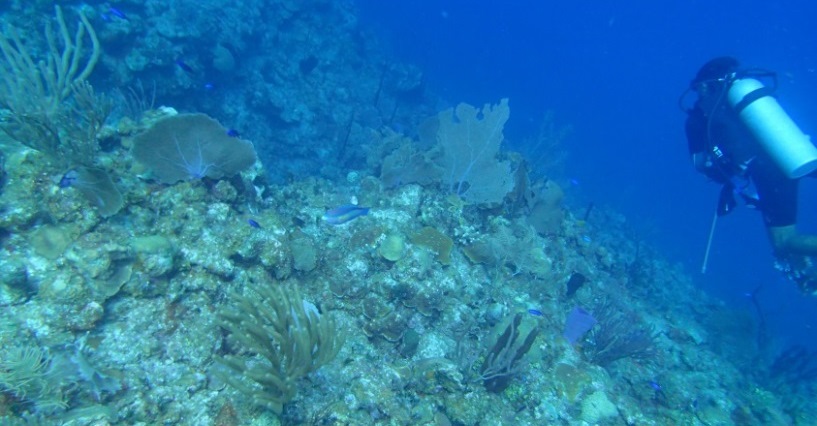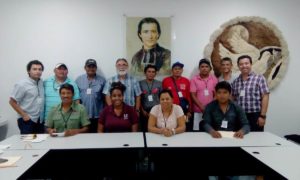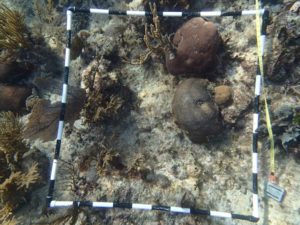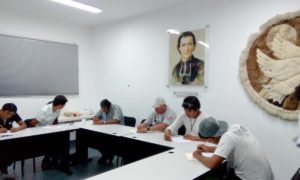
31 May Strengthening the capacity of tourist service providers for coral reef ecosystem conservation in Mahahual, Mexico
A three day workshop hosted at the Marist University in Merida brought together a group of tourist service providers from the small coastal community of Mahahual, Quintana Roo, Mexico. Services provided include recreational diving, snorkeling and kayak tours on the Mesoamerican Barrier Reef. The purpose of this workshop was to share knowledge about the possible effects of climate change on coral reef ecosystems, the impacts on coastal communities and the importance of conservation.

Workshop participants- tourist service providers from Mahahual and members of the Marist University, Merida
The group was given a brief introduction about the Community Conservation Research Network (CCRN) and presentation topics included:
- Ecology of coral reefs
- Marine current systems in the Gulf of Mexico and the coasts of Quintana Roo
- Climate change and its global effects on weather patterns
- Effects of climate change on marine fisheries, the vulnerability of coastal communities, and improving adaptation and resilience
- A case study on adaptation and resilience in the Punta Allen community
The group was also presented with the preliminary results of the coral reef monitoring program which is in its 4th year, with one more year to go. The program has been monitoring changes in coral reef health in areas with high recreational activity. The presentation was received with a lot of excitement as the providers were able to recognize their daily working environment and were very interested in how conditions had changed throughout the four years.

Monitoring transect of healthy brain coral and sea fans.
The tourist service providers got to share their local knowledge and experience by completing a Strengths Weaknesses Opportunities and Threats (SWOT) analysis for the community. Identified strengths included availability of tele-communication services, the coral reef, the cruise line industry, good infrastructure, and availability of employment. Weaknesses identified were a low level of educational opportunities, little knowledge about economic, social and environmental themes related to the coral reef ecosystem, a lack of employment diversity and a low level of community organization. Opportunities identified included capacity building workshops and improved methods for community management of the coral reef ecosystem, and volunteering for community activities like beach clean ups and coral reef awareness programs. Threats identified included low salaries, negative impacts on the ecology of the coral reef from bad diving practices, illegal fishing, a monopoly in the provision of tourist services, and climate change.

Tourist service providers completing their questionnaires on the significance and motivations for conservation
The group also completed a short questionnaire on the significance and motivations for conservation. One of the questions was “What do you understand by conservation?” to which one provider responded, “It is the way to maintain the resources and ecosystems in an optimum state of health.”
As we continue to work with this community, we hope that through capacity building workshops, the coral reef monitoring program, and knowledge exchange we can help to achieve this.
By Maren Headley, Juan Carlos Seijo and Alfonso Cuevas.


